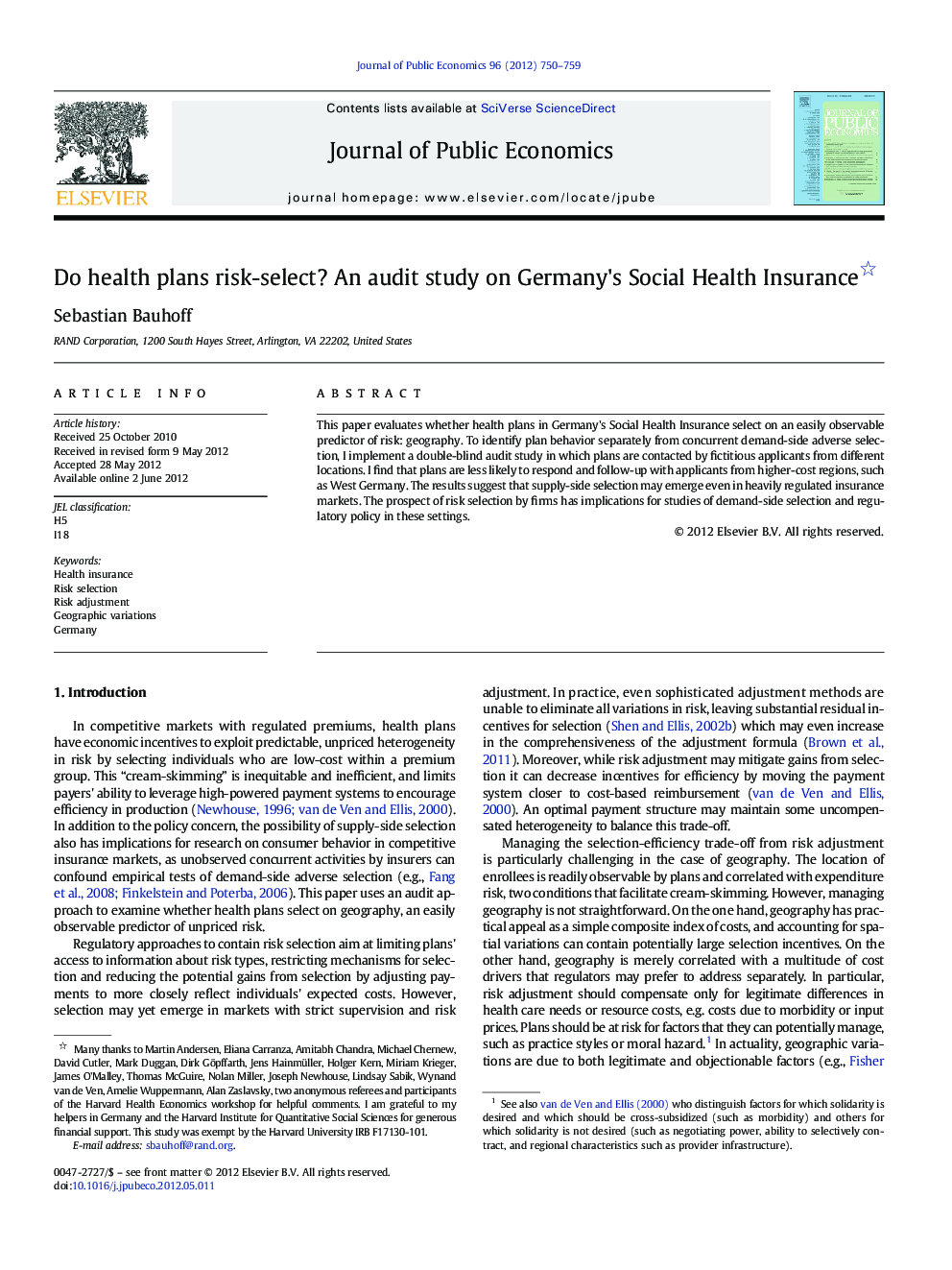| Article ID | Journal | Published Year | Pages | File Type |
|---|---|---|---|---|
| 968964 | Journal of Public Economics | 2012 | 10 Pages |
This paper evaluates whether health plans in Germany's Social Health Insurance select on an easily observable predictor of risk: geography. To identify plan behavior separately from concurrent demand-side adverse selection, I implement a double-blind audit study in which plans are contacted by fictitious applicants from different locations. I find that plans are less likely to respond and follow-up with applicants from higher-cost regions, such as West Germany. The results suggest that supply-side selection may emerge even in heavily regulated insurance markets. The prospect of risk selection by firms has implications for studies of demand-side selection and regulatory policy in these settings.
► In competitive markets, health plans face incentives to exploit unpriced hetereogeneity in risk. ► Geographic variations create such heterogeneity in the German Social Health Insurance. ► This audit study considers plans' response to fictitious applicants. ► Plans are found to be more responsive to applicants from low-cost regions.
